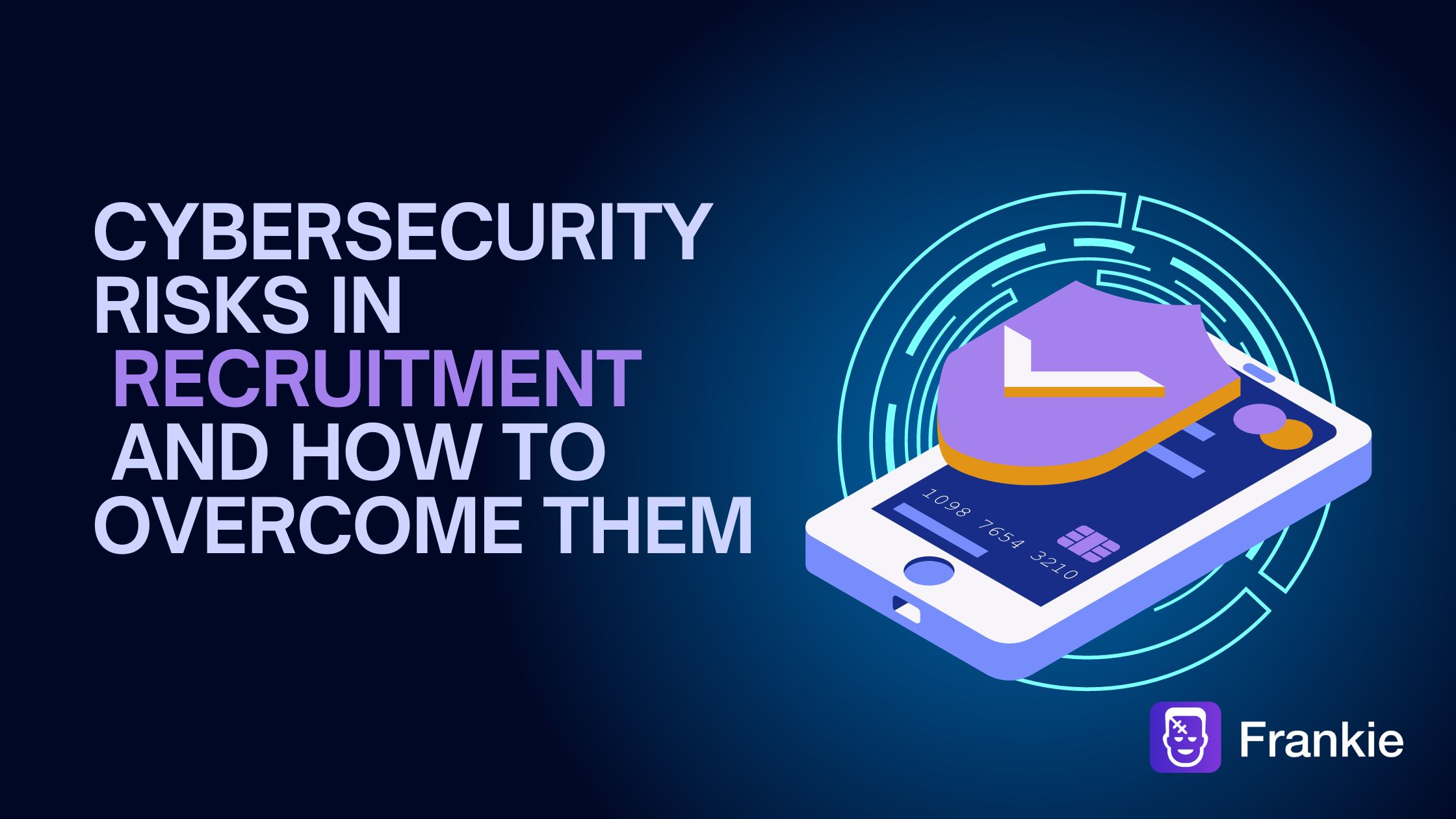Aug 23, 2024
In today's digital landscape, recruitment processes increasingly rely on online platforms and cloud-based systems. While these technologies simplify hiring, they also expose organizations to significant cybersecurity risks. From data breaches to phishing attacks, the recruitment sector is particularly vulnerable to cyber threats, which can compromise sensitive candidate information and harm a company's reputation. Understanding these risks and implementing robust security measures is crucial for safeguarding both your organization and your candidates.
The Importance of Cybersecurity in Recruitment
Cybersecurity is essential in recruitment because the process involves handling a significant amount of sensitive personal information, such as candidates’ resumes, contact details, and employment histories. If this information falls into the wrong hands, it could lead to identity theft, financial fraud, and damage to the company’s reputation. Moreover, data breaches can result in hefty fines and legal consequences, especially with the increasing number of data protection regulations worldwide. Therefore, maintaining high cybersecurity standards is not just a regulatory necessity but also a critical aspect of protecting your business and ensuring trust with your candidates.
Key Cybersecurity Risks in Recruitment
1. Data Breaches: Recruitment databases store vast amounts of personal information. If not properly secured, they can be a prime target for hackers, leading to severe consequences, including legal repercussions and loss of trust.
2. Phishing Attacks: Cybercriminals use phishing emails to trick recruiters or candidates into revealing sensitive information. In recruitment, phishing attacks can lead to unauthorized access to systems, compromising the entire process.
3. Ransomware: Ransomware attacks involve cybercriminals encrypting an organization's data and demanding payment for its release. This can lock down access to critical candidate information and disrupt the hiring process.
4. Insider Threats: Not all cybersecurity threats come from external sources. Insider threats, such as employees or contractors with access to sensitive data, can pose a significant risk, whether intentional or accidental.
5. Unsecured Communication Channels: Sensitive information is often exchanged via email or messaging apps. If these channels are not secured, they can be intercepted by cybercriminals, leading to data leaks.
How HR and Recruitment Companies Can Protect Data
HR and recruitment companies must take proactive steps to protect data and prevent breaches. First and foremost, it's important to implement strong data encryption, both at rest and in transit. Regularly updating and patching all recruitment software and platforms can prevent cybercriminals from exploiting vulnerabilities in outdated systems. Conducting regular security training for staff is another key measure, as it helps make sure that everyone is aware of the latest threats and how to avoid them.
Additionally, multi-factor authentication (MFA) should be mandatory to add an extra layer of security, making it harder for unauthorized users to access recruitment systems. Monitoring and auditing access to these systems can help detect any unusual activity early on, while secure communication channels make sure that sensitive information is shared safely. Finally, having a data breach response plan in place can minimize damage if an incident does occur, ensuring a swift and coordinated response.
How to Overcome Cybersecurity Risks in Recruitment
1. Implement Strong Data Encryption: Encrypting sensitive data is one of the most effective ways to protect it from unauthorized access. Make sure that all recruitment platforms and databases use advanced encryption standards.
2. Regularly Update and Patch Systems: Cybercriminals often exploit vulnerabilities in outdated software. Regularly updating and patching recruitment software is essential to prevent these exploits.
3. Conduct Regular Security Training: Educate recruiters and other staff members about the latest cybersecurity threats and how to recognize them. Regular training on topics like phishing awareness can reduce the risk of human error leading to a security incident.
4. Use Multi-Factor Authentication (MFA): Implementing MFA adds an extra layer of security by requiring users to provide two or more verification factors to access recruitment systems.
5. Monitor and Audit Access: Regularly monitor access to recruitment systems to detect any unusual or unauthorized activity. This helps identify potential insider threats or security breaches early.
6. Secure Communication Channels: Use encrypted communication tools for exchanging sensitive recruitment information. Avoid using unsecured channels for sharing personal data, and utilize secure messaging platforms.
7. Create a Data Breach Response Plan: In the event of a data breach, having a well-defined response plan can help minimize damage. This plan should include steps for containing the breach, notifying affected individuals, and reporting the incident to relevant authorities.
How Frankie Can Help
Frankie, a comprehensive recruitment platform, is designed with security at its core to help you mitigate cybersecurity risks. Frankie offers features like encrypted data storage, multi-factor authentication, and secure communication channels, making sure that your recruitment process remains secure from start to finish. Additionally, Frankie’s user-friendly interface and automated workflows reduce the likelihood of human error, further safeguarding sensitive candidate information.
By choosing Frankie, you not only simplify your recruitment process but also improve your organization’s cybersecurity posture. Protect your data, maintain trust, and stay ahead of emerging threats with Frankie.

